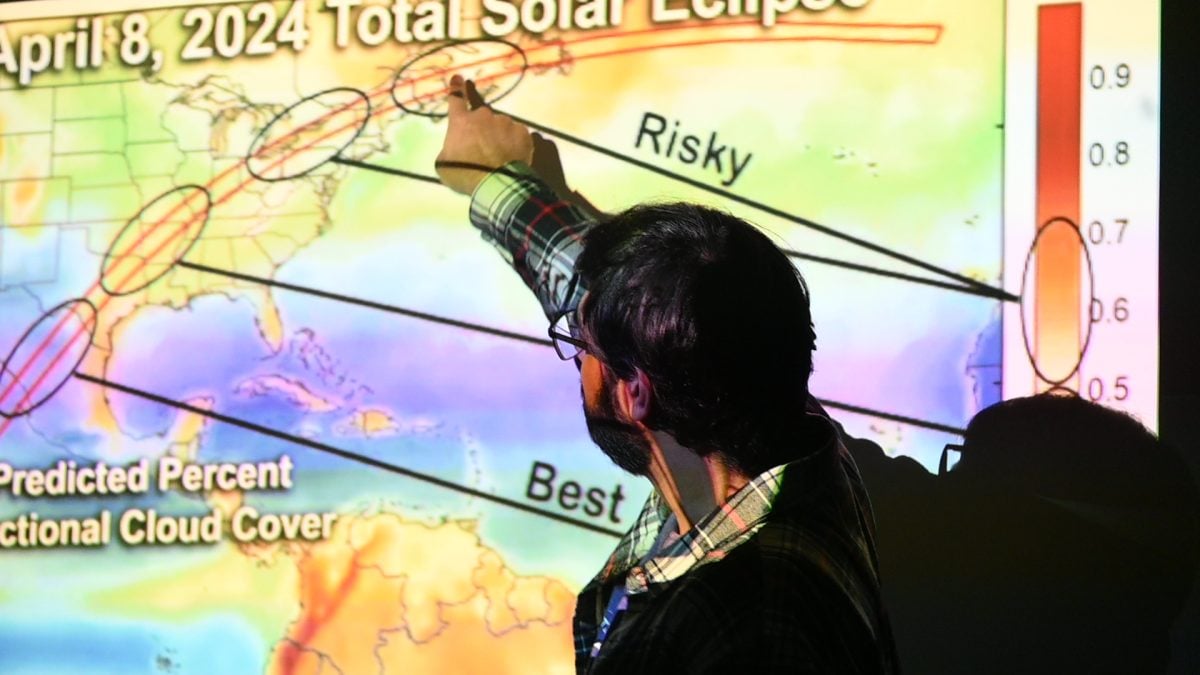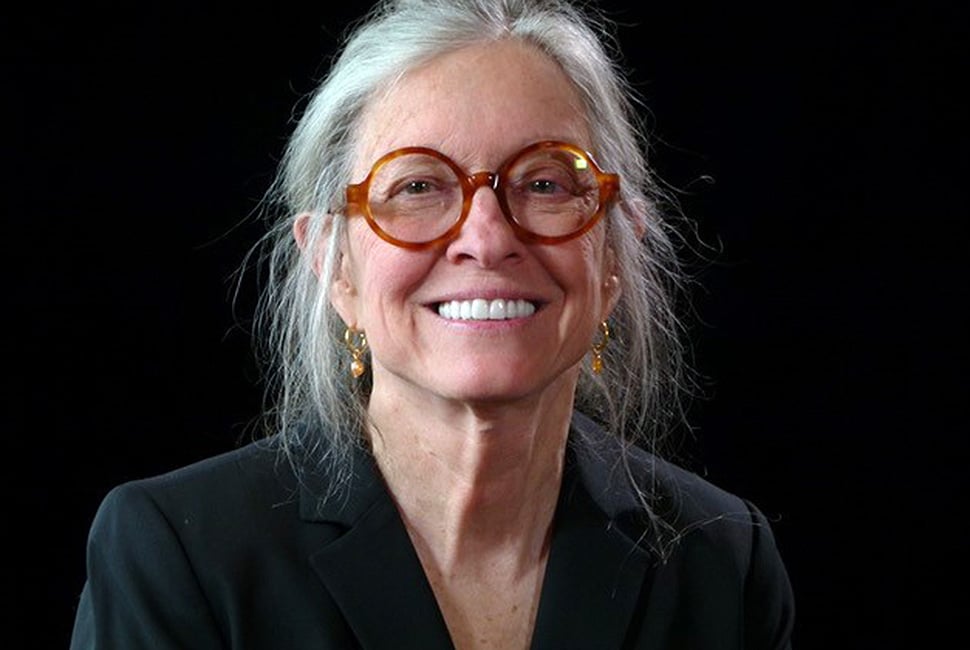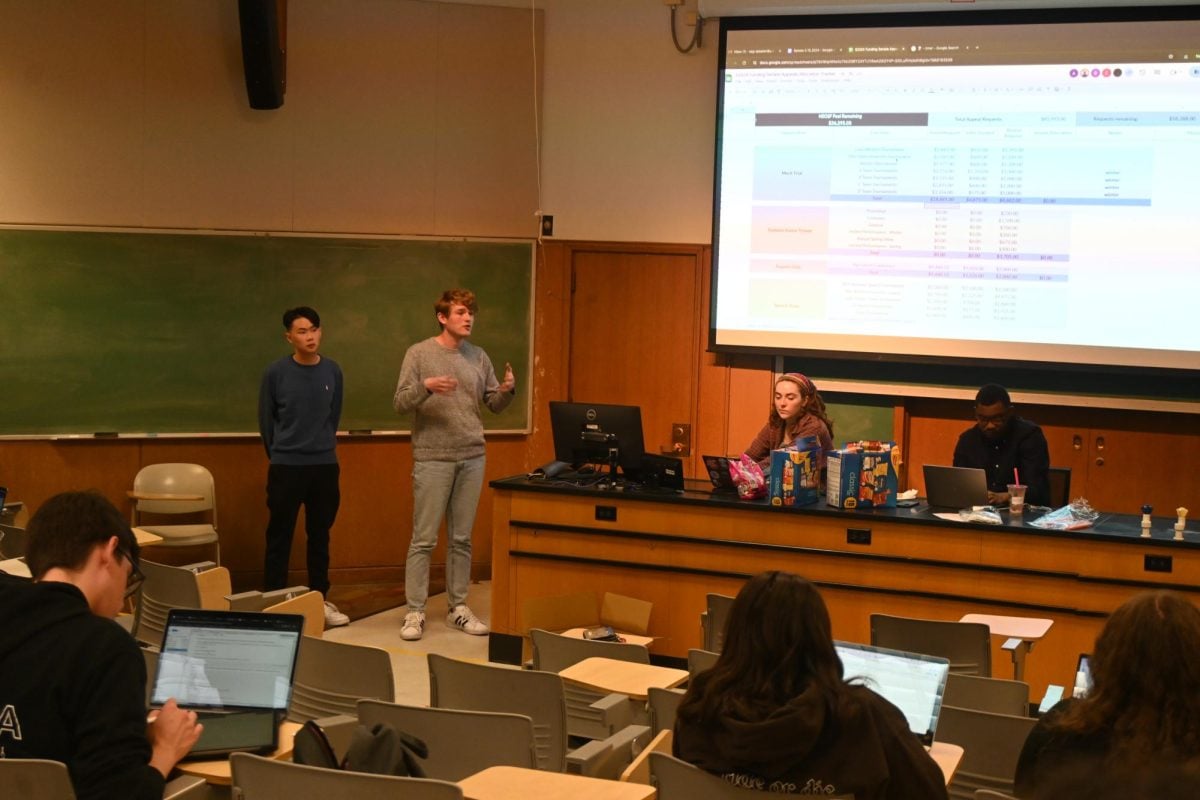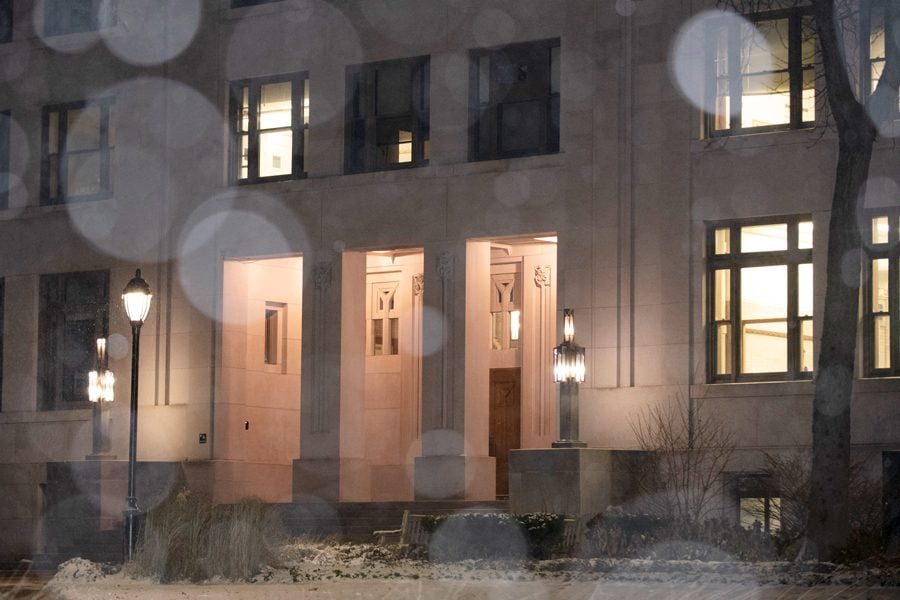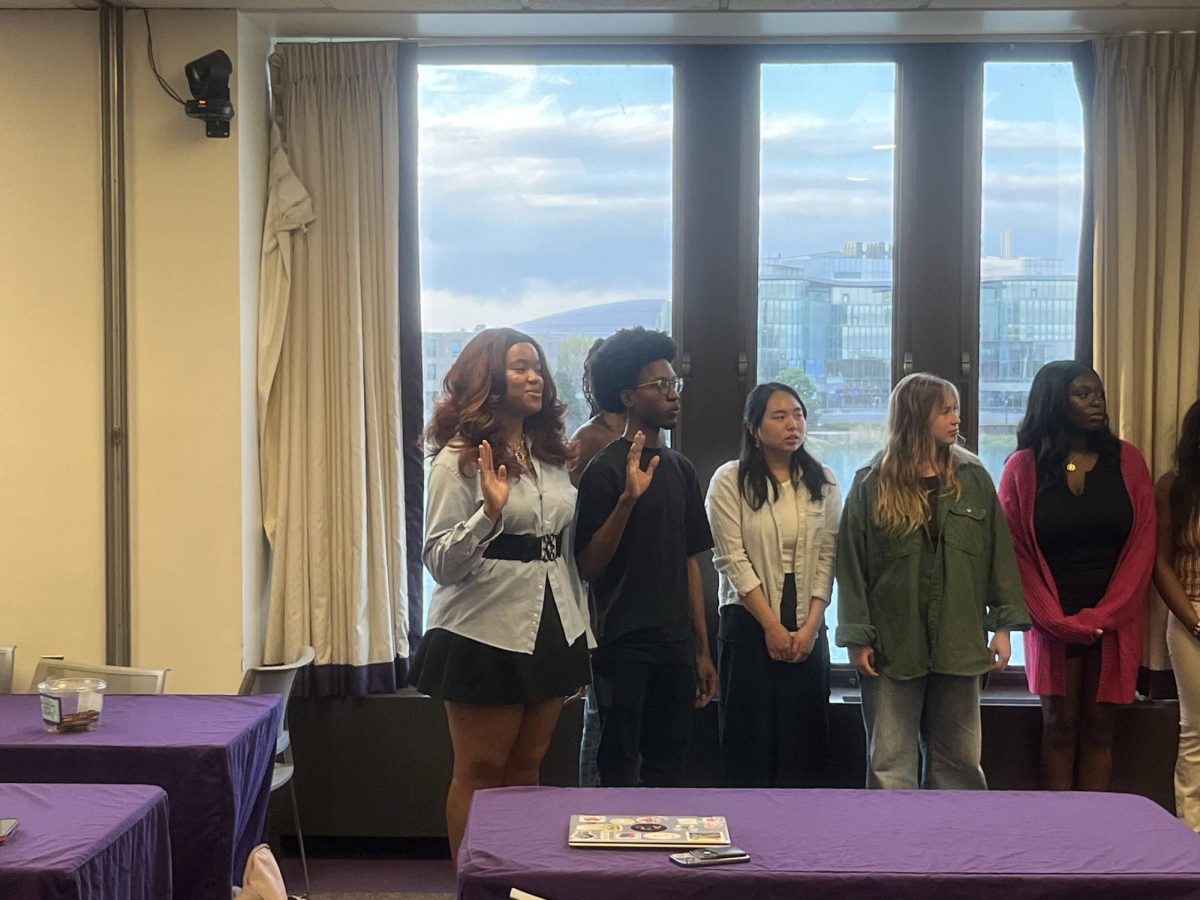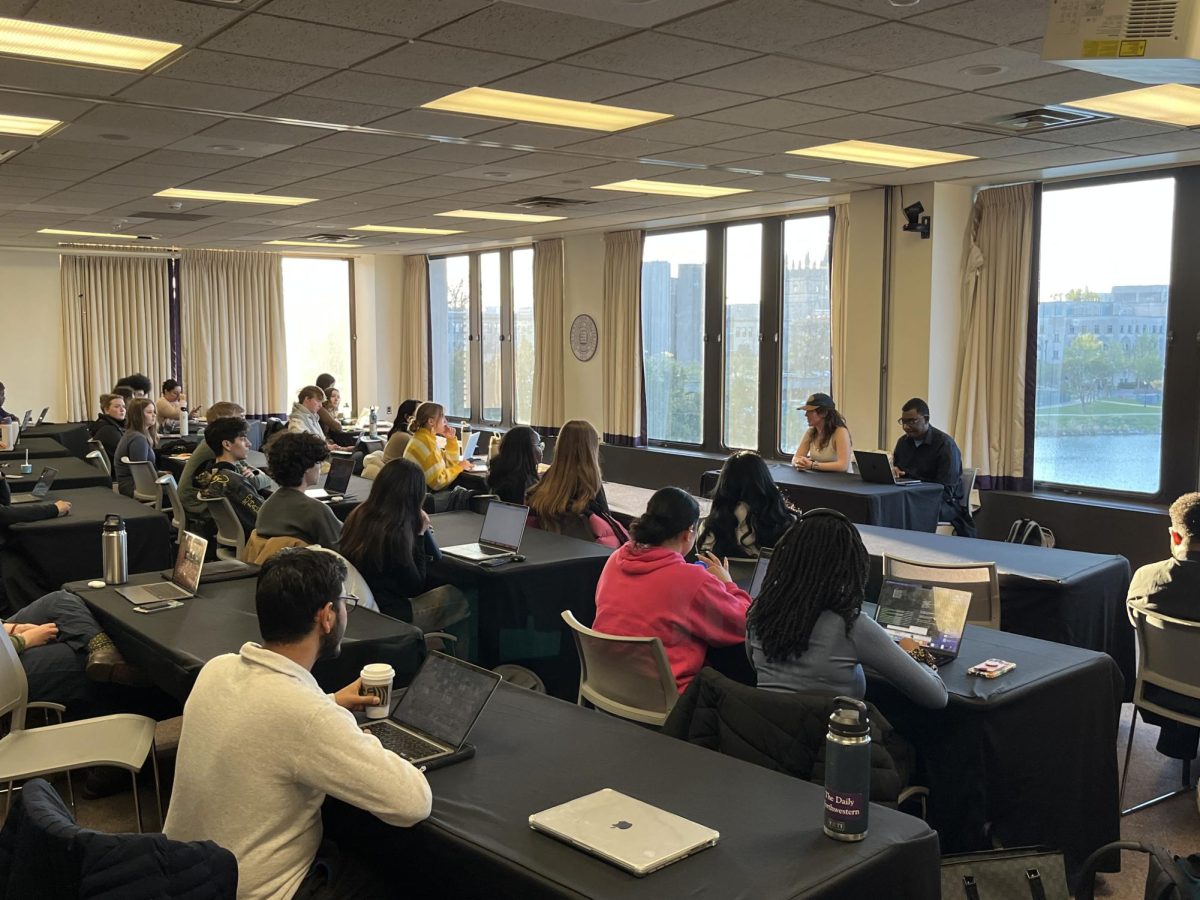Five hundred seventy-seven students voted in ASG Senate elections over the weekend, with turnout approximately 35% higher than in last year’s elections.
That was also more than triple the record-low turnout in ASG presidential elections last spring, when 175 students cast ballots.
Weinberg senior Dylan Jost, ASG’s executive officer of democracy, said the heightened turnout was due to a more strategic marketing push surrounding elections and the return of an email informing the student body about elections.
“I’m proud of the increased turnout we saw, and I’m optimistic that this will continue in the spring with the presidential election,” Jost said.
ASG Senate consists of 40 total seats, with 20 Senators representing NU’s undergraduate schools and 20 representing student groups. All 20 school seats were available in this weekend’s election.
ASG Senate allocates seats proportional to the school’s populations. This year, the Senate designated 10 seats for the Weinberg College of Arts and Sciences, four for the McCormick School of Engineering, two for the School of Communication, two for the Medill School of Journalism, one for the Bienen School of Music and one for the School of Education and Social Policy.
Senators are responsible for passing legislation, allocating funding to student organizations and representing the student body in conversations with administration.
Twenty-seven candidates petitioned to run in this year’s election, 18 candidates for Weinberg, four for Medill, three for McCormick, one for Bienen and one for SESP. No candidates petitioned to run for the School of Communication seat.
Phoebe Cahill, Natasha González, Melissa Kusi-Amponsah, Eliza Marcus, Vernon Otieno, Kaitlyn Salgado-Alvarez, Knox West, Alvaro Junco, Jamal Omoniyi, Hamza Haq won seats in Weinberg. Layah Nasr, Diego Oliva and James La Fayette Jr. won seats in McCormick. Taylor Hancock and Norah D’Cruze won seats in Medill. Angela Choi won a seat in Bienen. Addy Feldman won a seat in SESP.
Several of the successful candidates told The Daily last week they hope to prioritize student group funding, financial accessibility and mental health resources — among other issues — in the Senate.
ASG implemented ranked-choice voting for the first time in last year’s Senate elections. The voting structure allows students to rank as many candidates as there are seats available for their home school. For example, a student voting in Weinberg had the opportunity to rank up to 10 out of the 18 candidates in this year’s election.
SESP senior and Speaker of the Senate Leah Ryzenman said she feels confident that this year’s successful candidates have what it takes to effect change in the Senate.
“I’m really excited to have a great group of such passionate and motivated senators, and I think we’re gonna get a lot done,” Ryzenman said.
Email: [email protected]
Twitter: @jacob_wendler
Related Stories:
— The Daily Explains: Who’s running for ASG Senate?
— Northwestern commits to funding Dillo Day and Blowout, frees up funds for student orgs
— ASG Senate distributes remaining $1,000 of $30,000 funding budget to student orgs













